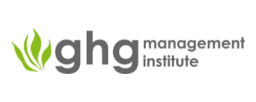COP29: Strengthening GHG Data Management and Mitigation in the Pacific: Lessons Learned and Future Pathways under the ETF, Paris Agreement, and Global Methane Pledge
This event provides an opportunity to discuss the potential pathways for improvement of methane reporting from the agriculture and waste sectors under the Enhanced Transaprency Framework (ETF) under te Paris Agreement to improve transpareny and data quality using national experience and recent project involvement. A quantum leap in the quality of reporting and national data management could be obtained through substaintial change in approach to country’s information and data management systems. Another way of facilitating improvement is building national expert capacity in understanding the ETF requirements to Greenhouse Gas (GHG) Inventories and establishing relevant national data flows for methane in each country. Pacific MRV experts as well as experts from other developing countries already realized the power of impact of development of data flows and data maps and will welcome this opportunity to share their experiences and views future improvements of their national systems and enhancing institutional arragements that this can bring. Establishing robust data platforms for methane accounting will enable collection of more detailed and disaggregated data that is fundamental for identifying opportunities for and tracking mitigation projects. Fiji already piloted the research and analysis of methane mitigation potential for wastewater and manure management and would like to share the results and discuss perspectives for this endevour with their fellow experts in Oceania and other developing countries. This will provide another opportunity for mainstreaming mitigation of GHGs particularly short-lived climate pollutants (SLCPs) into their sectoral policies and upcoming NDCs. It provides a platform to connect these concrete actions and ambitions to regional commitments to the Global Methane Pledge.



